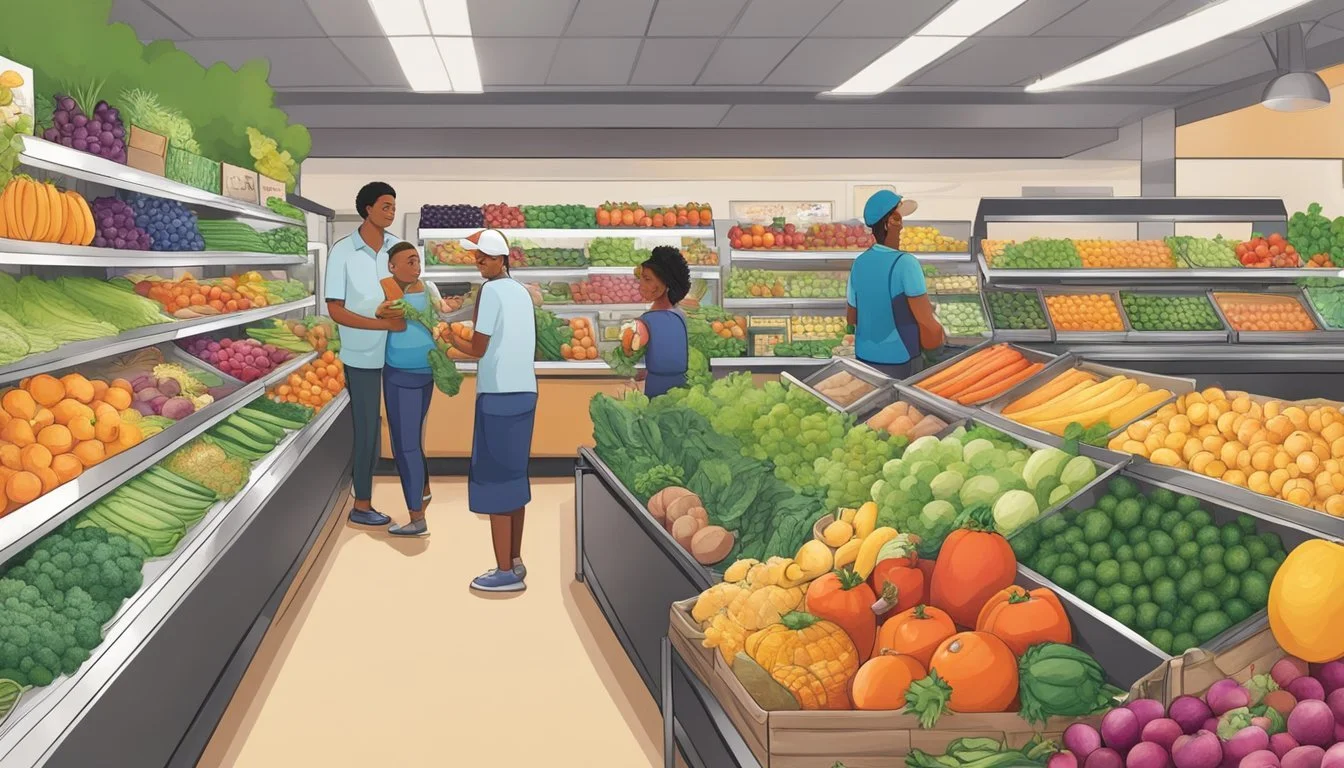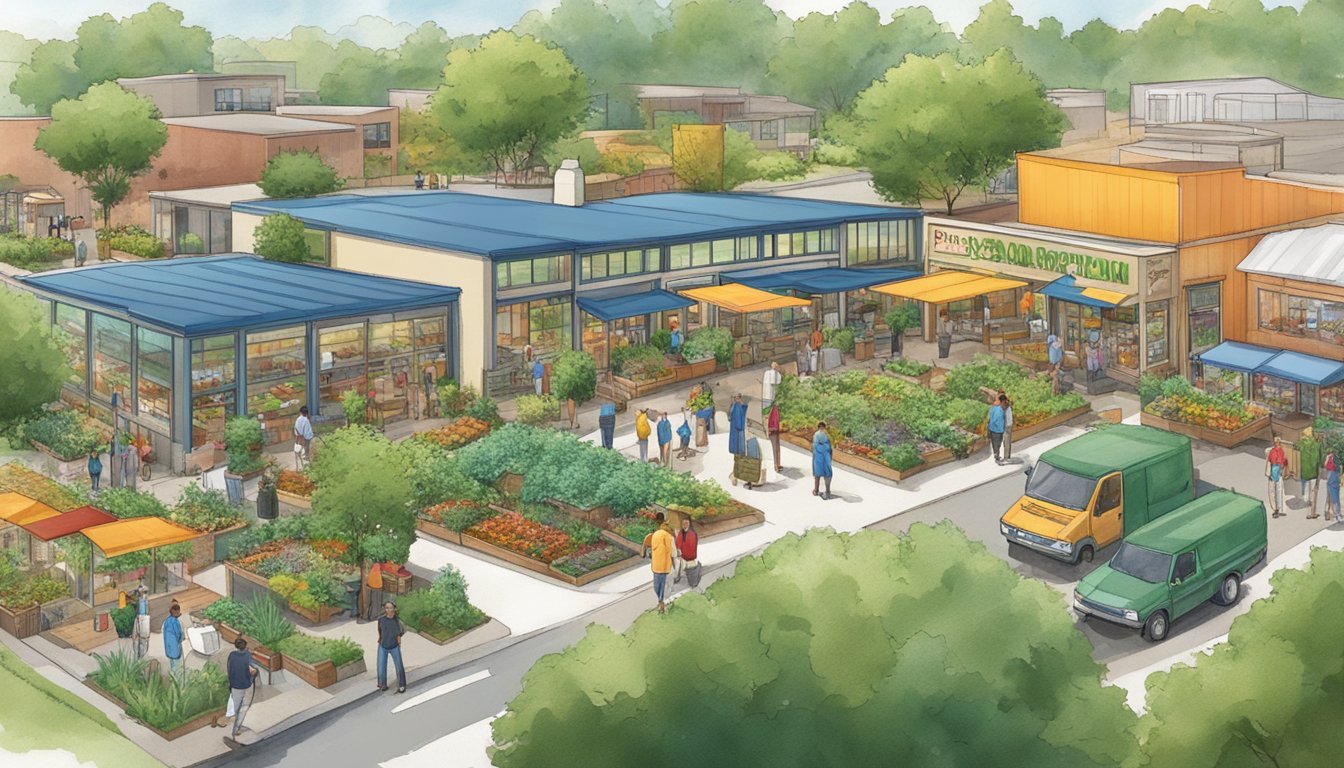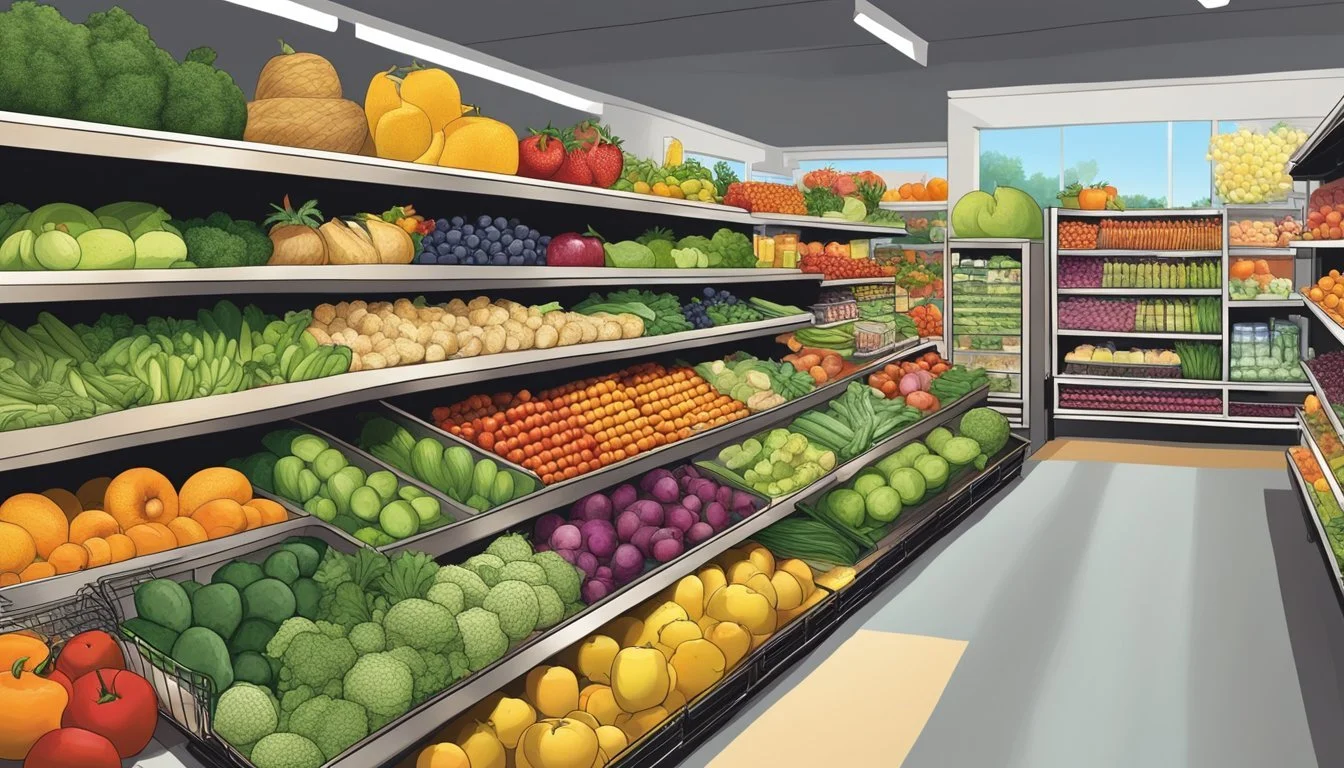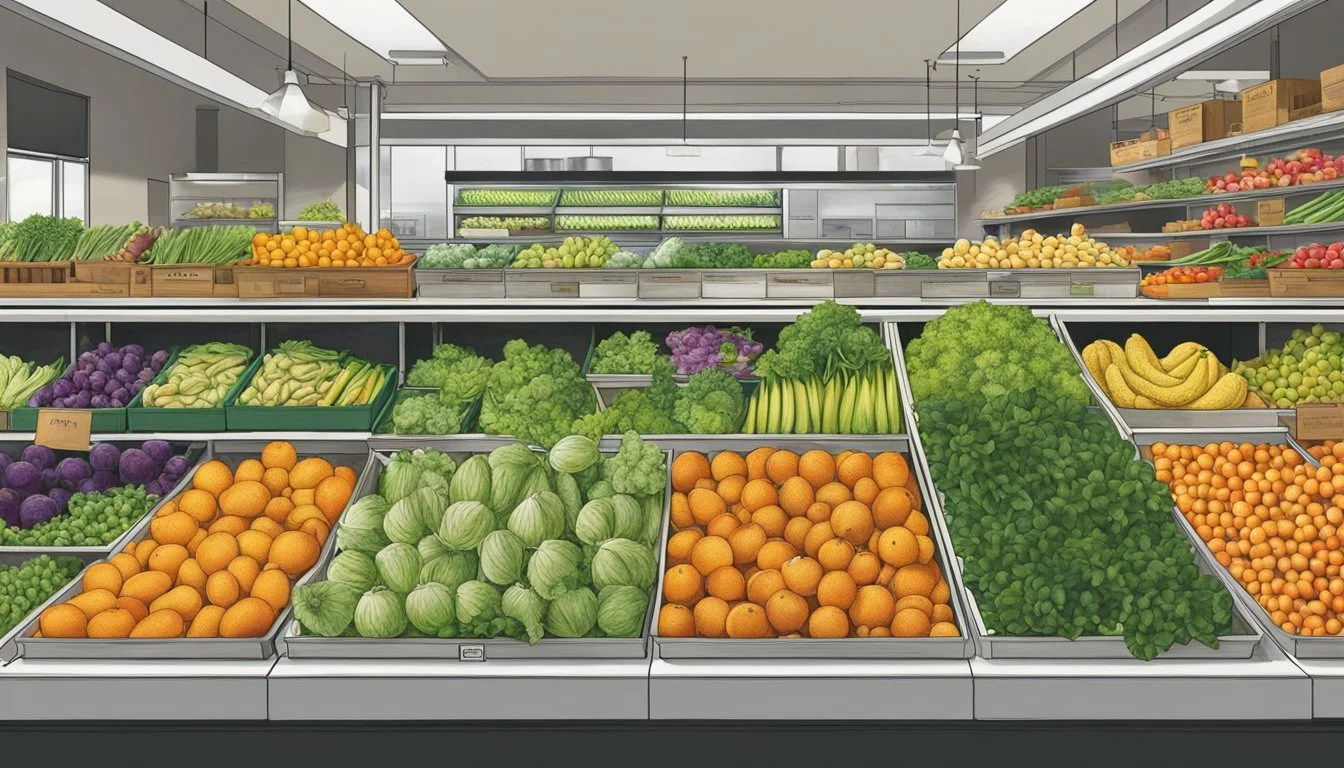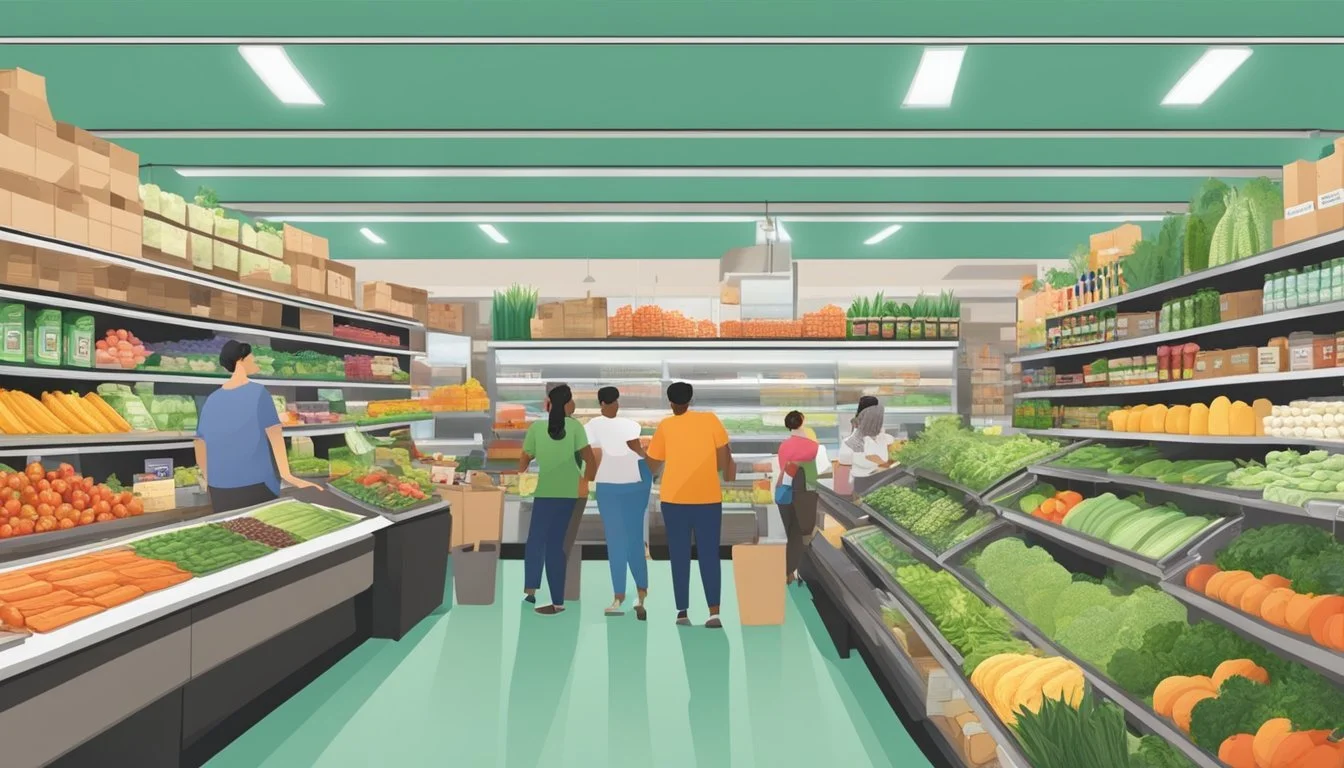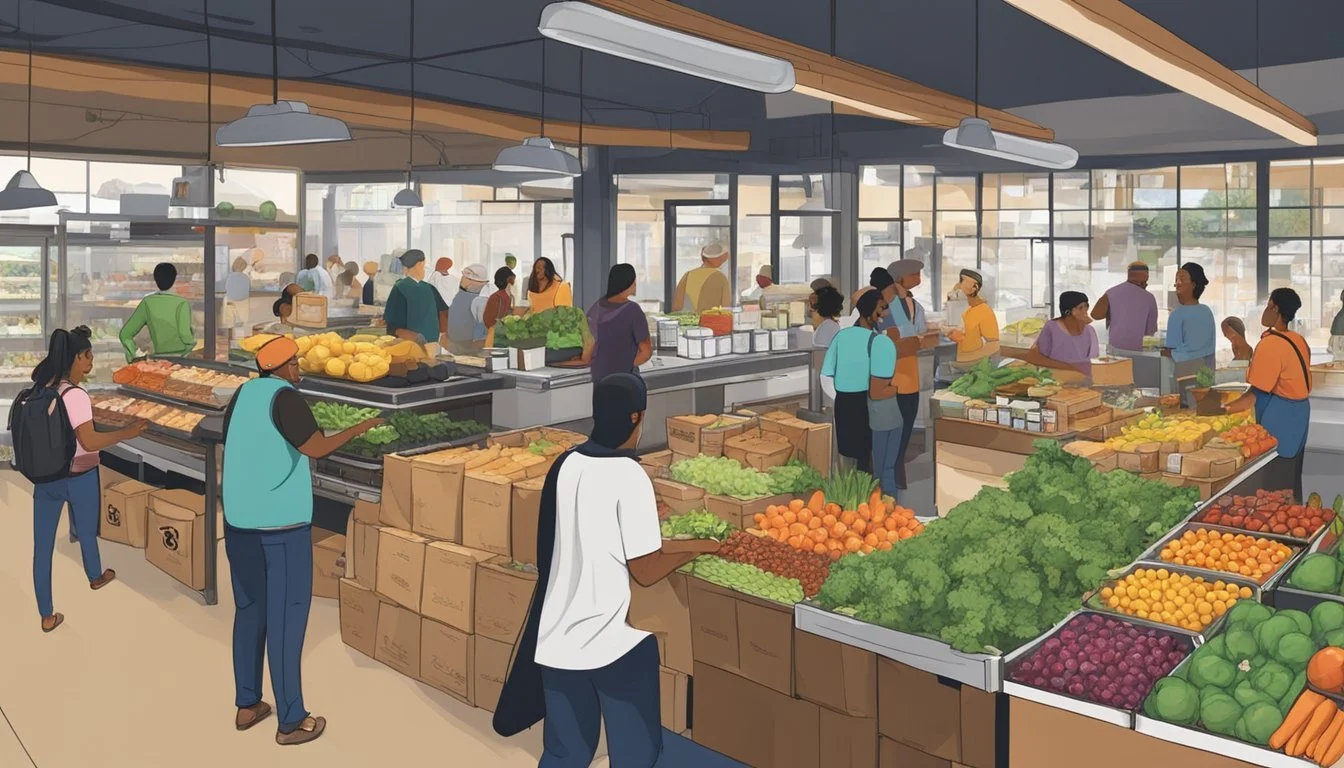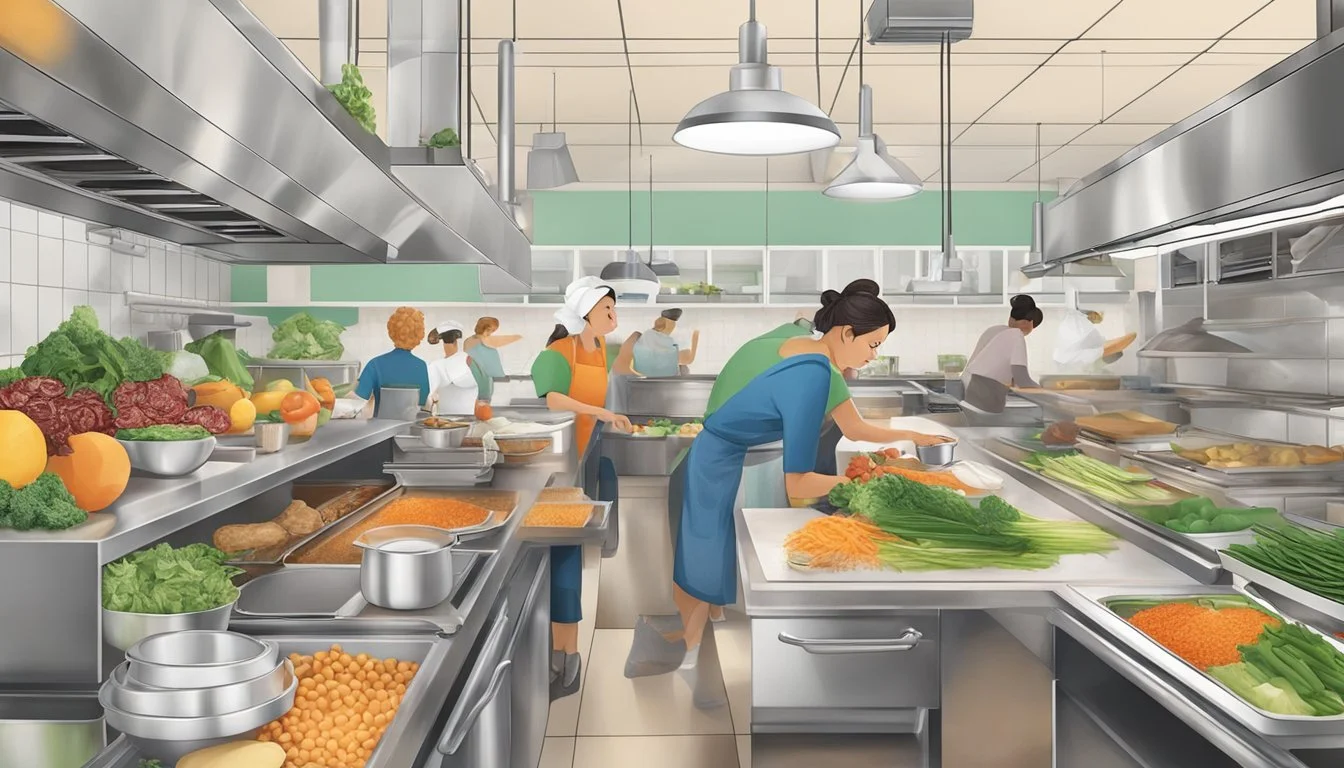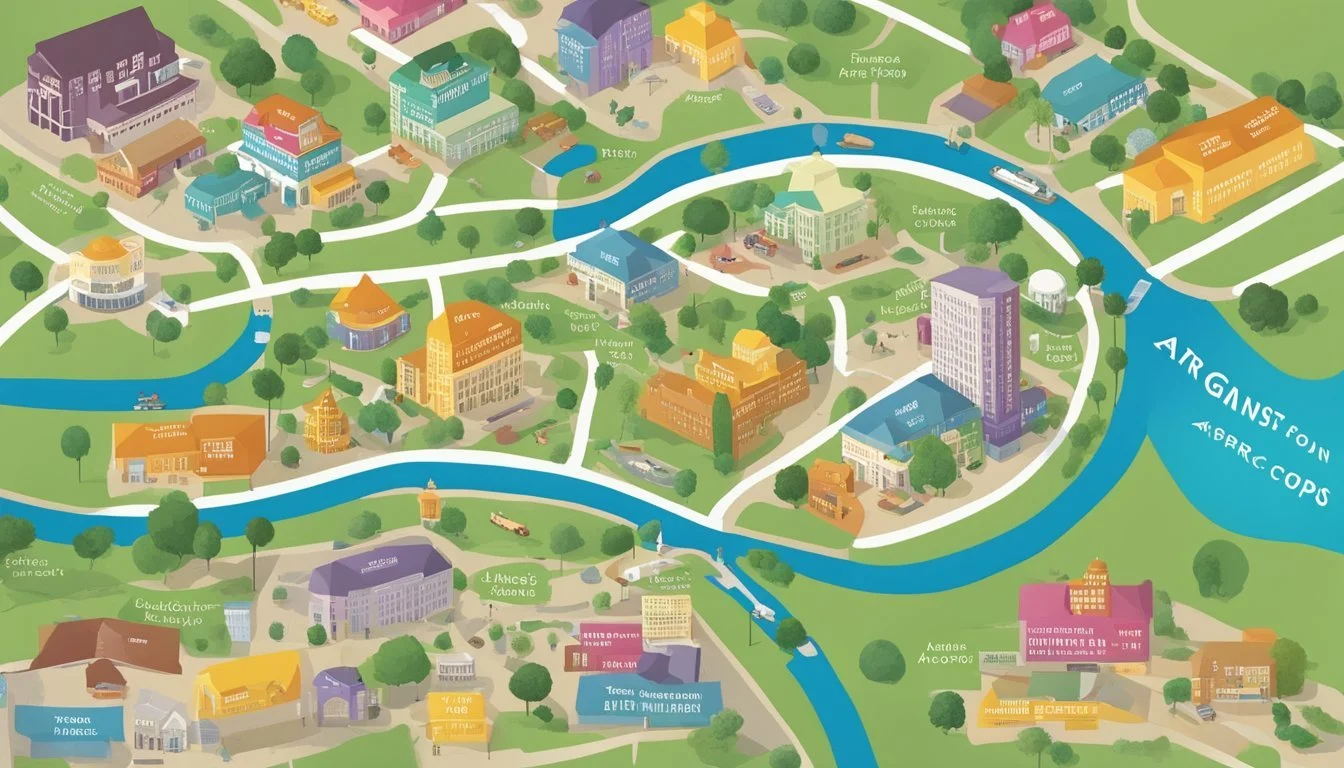Guide to Food Co-Ops in Arlington, TX
Your Local Shopping Blueprint
Exploring the landscape of food cooperatives in Arlington, Texas, opens a window into a community-focused way of sourcing food. Food co-ops cater to a growing desire for sustainable and locally grown produce, providing an alternative to traditional supermarkets. These cooperatives operate on principles of mutual assistance, where members often have a say in the operations, and profits are reinvested into the community or shared amongst members.
In Arlington, shoppers interested in food co-ops have the opportunity to connect with local farmers and producers. Establishments such as Off the Farm Food in nearby Flower Mound and Cross Timbers Food Cooperative in the larger Dallas-Fort Worth-Arlington metro area are part of a network that prioritizes healthful, clean, and locally sourced food. These co-ops often offer a range of products from fresh produce to artisanal goods, fostering a direct relationship between consumers and the source of their food.
The experience at a food co-op is distinct from shopping at a conventional grocer. Co-ops emphasize transparency in food sourcing, environmental stewardship, and support for local economies. Enthusiasts and newcomers alike find that participating in a co-op not only elevates their culinary repertoire with high-quality ingredients but also ingrains a sense of community and shared responsibility for food choices and consumption.
Understanding Food Co-Ops
Food cooperatives, commonly known as food co-ops, are member-driven organizations that offer a variety of grocery items, often with a focus on health and sustainability. They are based on collective buying and democratic member control, aiming to provide real food to their community.
Principles of Cooperatives
Food co-ops operate on several key principles that distinguish them from traditional grocery stores:
Voluntary and Open Membership: Co-ops are open to all who are willing to accept the responsibilities of membership without gender, social, racial, political, or religious discrimination.
Democratic Member Control: They are democratically controlled by their members, who actively participate in setting policies and making decisions.
Members' Economic Participation: Members contribute equitably to the capital of their cooperative and control it democratically.
Autonomy and Independence: Co-ops are autonomous, self-help organizations controlled by their members.
Education, Training, and Information: Co-ops provide education and training for members to contribute effectively to the development of their cooperative.
Cooperation Among Cooperatives: Co-ops serve their members most effectively by working together through local, national, regional and international structures.
Concern for Community: While focusing on member needs, co-ops work for the sustainable development of their communities through policies and programs accepted by the members.
Benefits of Joining a Co-Op
Members of a co-op enjoy numerous benefits:
Access to high-quality and fresh healthy food options, often locally sourced.
A chance to support sustainable agricultural practices and real food movements.
A say in the operations as a part of the community, fostering local economies.
Potential financial savings from collective buying and reduced overhead costs.
Education on nutrition and food sources, promoting a well-informed community on food-related issues.
Food co-ops are more than just a place to buy groceries; they are a testament to a community's commitment to healthy, sustainable living.
The Landscape of Arlington's Food Co-Ops
Arlington, TX boasts a variety of food cooperatives that provide residents with access to fresh, locally-sourced food and contribute to the community-oriented ethos of the city.
Popular Co-Ops in Arlington
Cross Timbers Food Cooperative stands out as a notable option, emphasizing local produce and sustainable practices. It serves the community not just as a source of healthy food but also as a hub for local farmers and producers to connect with consumers. Members can enjoy a regular supply of fruits and vegetables, with the added assurance of supporting the regional agricultural community.
Another key player in the area is the Farm to Fork initiative, which operates as a natural food co-op. They offer a range of products, from grass-fed beef and bison to free-range poultry and local raw honey. Unlike traditional stores with set hours, this co-op works on a membership basis, which allows for a direct relationship between consumers and suppliers.
Exploring Neighborhood Co-Ops
Within Arlington's neighborhoods, food co-ops serve as microcosms of food justice and equity. They not only provide access to nutritious food but also embody a commitment to social responsibility. These co-ops foster a direct economic relationship with local producers, ensuring a fair distribution of benefits within the community. They also double as educational spaces, where individuals can learn about the importance of food security and the impact of their consumption choices on the local economy and the environment.
Each neighborhood co-op in Arlington contributes a unique flavor to the city's overall food system. They are small-scale, consumer-owned entities that prioritize community well-being over competitive pricing, carving a distinct niche in Arlington's competitive landscape.
Membership and Participation
For individuals looking to be part of a food co-operative in Arlington, TX, understanding the structure of membership and the associated benefits is key. Co-ops thrive on community participation, and becoming a member often means more than just access to quality food—it’s about contributing to a sustainable local food system.
Becoming a Member
Individuals interested in joining a co-op typically go through an application process which may involve a membership fee. For instance, some local co-ops require an annual membership payment, like a fee of $50. This initial fee not only grants membership status but also supports the operational costs of the co-op and funds various community initiatives.
Member Discounts and Benefits
Members of a food co-op often have access to a range of discounts and benefits as part of their participation. These benefits can include:
Discounts on purchases: Members may be eligible for reduced prices on the co-op's offerings, such as organic produce, free-range meats, and local dairy products.
Access to fresh, seasonal goods: Co-ops often source their products locally and organically, ensuring that members receive fresh and abundant produce reflective of the season.
Community engagement: Membership extends beyond shopping and includes opportunities to engage with and support the local food community through the co-op’s activities and events.
Members must be prepared to accept the co-op’s approach to food distribution, which may include receiving a variety of fruits and vegetables based on what is seasonally available.
Sourcing and Quality of Food
In Arlington, TX, food co-ops prioritize local sourcing and uphold stringent quality standards for produce and meats. These co-ops are committed to providing members with access to organically grown fruits and vegetables as well as meats that meet high welfare standards.
Local Farmers and Organic Produce
Food co-ops in Arlington have established strong relationships with local farmers to supply a variety of organic produce. Local sourcing ensures freshness and supports the region's agricultural community. Co-ops often feature a range of organic fruits and vegetables, adhering to environmentally friendly practices that avoid synthetic pesticides and fertilizers.
Meat Quality Standards
The meats offered at Arlington food co-ops often come from animals that have been grass-fed and pastured. This not only enhances the flavor but also contributes to the meats being healthier. Standards for "clean meat" imply a commitment to offering products from animals raised without hormones or unnecessary antibiotics, ensuring high-quality poultry, beef, and pork.
Seasonal Vegetables and Fruits
Co-ops take advantage of the seasons to provide peak freshness, which translates into better taste and nutrition for their customers. They focus on stocking seasonal vegetables and fruits, reducing the carbon footprint associated with long-distance transportation and supporting sustainable agriculture. This practice allows consumers to enjoy produce that reflects the true bounty of each season in Texas.
Economic and Health Impacts
Food co-ops in Arlington, Texas, provide significant economic and health benefits to the local community. These cooperatively owned and operated retail outlets prioritize offering healthy, high-quality foods, including options for clean meat and organic produce.
Economic Impacts:
Job Creation: Co-ops contribute to the local economy through job creation and support for local farmers and producers.
Reinvestment: Profits are often reinvested back into the community, enhancing economic stability.
Health Impacts:
Access to Nutritious Food: Co-ops focus on nutritious options, thereby improving community health outcomes.
Education: They often educate members and customers on healthy eating and sustainable practices.
Aspect Benefit Healthy Eating Co-ops like Your Health Source emphasize the importance of whole, unprocessed foods, positively influencing dietary habits. Budget-Friendly Choices They offer budget-conscious solutions, making healthful eating accessible to a broader demographic. Clean Meat By sourcing from trusted suppliers, co-ops ensure the availability of meat produced with high ethical and health standards. Community Health The promotion of wholesome, balanced diets helps mitigate nutrition-related health issues in the community.
Co-ops also serve as a platform for cooperative economics; they are foundational in establishing a sustainable local food system that benefits both producers and consumers while fostering a sense of community. By choosing to shop at a food co-op, members and non-members alike can contribute to a positive economic ripple effect within their locality, support ethical practices, and prioritize their health and that of their families.
Community Engagement and Events
In Arlington, TX, food co-ops form a nexus between healthy eating and community involvement. They leverage social platforms and organize events to foster a tight-knit network of food-conscious residents.
Co-Op Workshops and Gatherings
The Arlington Foodies co-op conducts events such as monthly farmer's markets and bi-weekly produce pickups. These gatherings are not only hubs for access to farm-fresh produce but also serve as educational workshops where members can learn about sustainable practices and nutrition. For instance, the co-op offers a half bushel of produce for $25, with pickups located in the heart of Downtown Arlington.
Event Locations: Downtown Arlington
Frequency: Bi-weekly and monthly events
Cost: $25 for a half bushel (Produce Co-op)
Social Media and Community Outreach
Social media plays a vital role in the co-op's community engagement strategy. The Arlington Foodies Facebook Group acts as a digital meeting space for members where they can share tips, recipes, and information about upcoming events. Moreover, it's a platform where the co-op can reach out for event features, such as food drives, by connecting with members directly via their preferred communication channel.
Facebook Group: Arlington Foodies
Purpose: Sharing information, organizing community events
Outreach Tools: Posts, Event Announcements, Community Discussions
This dynamic blend of in-person and online interaction helps Arlington's food co-ops keep their member base active, informed, and engaged in the local food movement.
Shopping at a Food Co-Op
When shopping at a food co-op in Arlington, TX, customers engage with a system focused on healthy, locally-sourced products offered in a unique retail format. It differs from traditional grocery shopping experiences with an emphasis on community involvement and education.
How to Shop
At a food co-op, customers typically have the option to become members, though this is not always required to make purchases. Members often receive benefits such as discounts, while also contributing to the governance of the co-op itself. Shopping at a food co-op in Arlington involves:
Choosing Products: Patrons select from high-quality groceries, including fresh produce, meat, and bulk items stored in bins or bags.
Bulk Bins: Customers can use their own containers or bags provided by the co-op to purchase the amount they need, reducing waste.
Pick Up Schedule: Some co-ops operate on a set schedule, such as "every other Tuesday," for the pickup of pre-ordered boxes containing a variety of local goods.
Understanding Product Tags
Product tags at a food co-op often contain more information than typical grocery stores. These tags can help shoppers make informed decisions about the products they choose:
Source: Tags might indicate if the product is locally sourced or from a particular farm.
Certifications: Look for indications of organic certification or other ethical standards.
Price Breakdown: Understand how pricing works, including any discounts that apply to members or bulk purchases.
Educational Information: Tags may provide details about the benefits of the product or suggestions for use, contributing to the cooperative's mission to educate consumers.
Cooking with Co-Op Ingredients
Incorporating ingredients from food co-ops into your cooking can lead to healthier meals using organic and locally-sourced products. Food co-ops in Arlington, TX, offer a variety of fresh ingredients that inspire creative and nutritious recipe development.
Using Whole, Organic Ingredients
When one shops at a food co-op, they have access to whole, organic ingredients that are less likely to contain pesticides and synthetic fertilizers. For example, organic produce such as beets and apples can be combined to create a Gingered Beet and Apple Salad. Cooking with whole, organic ingredients supports not only personal health but also the health of the community and environment.
Recipe Ideas and Tips
Apple-Stuffed Pumpkins:
A festive, autumn-inspired dish that showcases the natural sweetness of apples.
Utilize pumpkins and apples from the co-op to ensure freshness.
Gumbo:
A hearty and versatile dish that can incorporate various organic vegetables and responsibly-raised meats found at the co-op.
Co-ops often provide grass-fed and pastured meats which can enhance the flavor profile of your gumbo.
Spiced Sweet Potato Pie:
Using organic sweet potatoes from a co-op can result in a more robust flavor.
Sweet potatoes are not only flavorful but also rich in vitamins, making this dessert a healthier option.
Preparing meals with food co-op ingredients encourages a connection between consumers and the local food system, and it fosters a deeper appreciation for wholesome, farm-to-table meals.
Sustainable Practices and Environmental Impact
In Arlington, TX, food cooperatives or co-ops are pivotal in driving the local sustainable food movement, influencing the environmental impact of food consumption. These co-ops are member-owned, and they focus strongly on procuring products that are environmentally friendly. They prioritize items that facilitate low carbon footprint production, including grass-fed meats and farm-to-table selections.
Many co-ops in Arlington are dedicated to reducing waste and promoting recycling. They often provide options for consumers to purchase staple dry goods in bulk, effectively cutting down packaging waste. Additionally, these co-ops support organic farming – which avoids synthetic chemicals – further reducing the environmental impact.
The University of Texas at Arlington (UTA) has implemented noteworthy sustainable dining practices. The composting program at UTA stands out as a role model, showcasing how food waste can be reduced and transformed into nutrient-rich compost for campus gardens.
Here's how Arlington co-ops and institutions like UTA contribute to sustainability:
Bulk Buying: Less packaging waste by enabling the purchase of bulk goods.
Local Sourcing: Shorter transportation distances for food items, reducing greenhouse gas emissions.
Composting: Converting organic waste to compost, thereby reducing landfill use and improving soil health.
Grass-Fed Options: Availability of meat from grass-fed animals, known for being more environmentally sustainable.
Educational Programs: Raising awareness about personal and collective environmental responsibility through community education initiatives.
These co-ops and institutions are not only food providers but also educators and leaders in the movement towards a sustainable future. Through collective effort, the environmental footprint of the local food system in Arlington is being continuously addressed and improved upon.
Food Co-Op Directory
Food co-ops provide access to quality, locally sourced groceries. The directory below lists food co-op locations in Arlington and expands to include nearby cities offering these community-focused shopping alternatives.
Arlington's Food Co-Op Locations
Arlington does not currently have a dedicated food co-op within its city limits. Residents looking for cooperative grocery options might need to explore neighboring communities or urban markets in nearby locales.
Nearby Cities with Co-Ops
Fort Worth, TX
Rose Creek Farms Cooperative: Specializes in a variety of naturally grown produce and meats, including vegetables, herbs, chicken, turkey, beef, pork, and eggs using biodynamic farming methods.
Denton, TX
Residents can find food co-ops that provide organic and natural food options, emphasizing the community and worker-owned business models.
Oak Cliff, TX
Though not immediately adjacent to Arlington, Oak Cliff has urban market options that can cater to those seeking cooperative-style food purchasing.
Irving, TX
While detailed information on Irving's co-ops isn't specified, the city's proximity to both Arlington and Dallas implies potential accessibility to food co-ops.
Urban Acres
This entity could refer to different initiatives or locations in Texas, known for fostering local food communities and could be a relevant term for individuals searching for co-ops in the Dallas-Fort Worth-Arlington metroplex.


